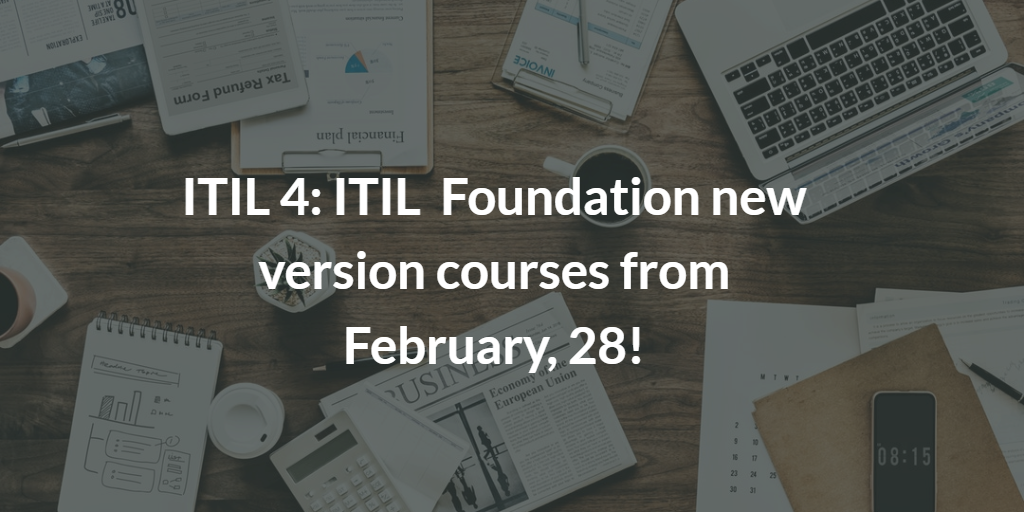News
View the latest inspiring and positive news and information about what's going on in the PM and IT world.

A project manager is a professional in the field of project management. The project manager is accountable to the project board and has to run the project daily, by planning and executing the project. He/she is the professional (internal or external to the organization) assigned to lead the project team for achieving the project objectives.
The role of the Project manager
The project manager’s main responsibility is to accomplish the project objectives by ensuring the project deliver the product(s) according to the time, quality, cost agreed (within tolerance). The professional should manage the constraints of a typical project which are cost, time, scope and quality.
This person is the professional responsible for leading a project from its starting up to execution. This includes planning, delegating, monitoring and controlling. The PM has to focus on managing the people (communication and people management are key competencies) and managing resources.
The PM has full responsibility and authority to complete the assigned project.
The Responsibilities of the Project Manager
The responsibilities of a Project Manager can vary from business to business. Factors like industry, company size, company maturity, and company culture may affect the specific responsibilities but there are some standard responsibilities that most PMs handle.
The Project Manager’s common responsibilities are:
- Liaise with stakeholders, suppliers, customers, end-users
- Define and communicate the project objectives to the team
- Developing the project plans
- Control, monitoring, reporting
- Procurement of the project requirements - workforce, material, technologies
- Managing and leading the project team
- Establish the project’s procedures: risk management, issue management, change management, communication management
- Budgeting
The Competences of the Project Manager
Core competencies according to the PMBok guide are identifiable in three main skill sets:
- Technical Project management Competences
- Leadership Competencies
- Strategic and Business Management Competencies
The technical project management competencies are the core skills for a project manager and include
- Planning
- Time Management
- Execution
- Decision Making
- Critical Thinking
Leadership skills can support longer-range strategic objectives
- People management
- Communication
- Negotiation
- Team building
Strategic and Business Management skills mean being knowledgeable about the business, and being able to explain to the project team and stakeholders:
- Strategy
- Goals and Objectives
- Products and Services
- Priorities
The Trends in Project Management
We live in a fast-paced environment where everything is pervaded by a constant transformation and change is the only common value. The number of organizations which are using project management procedures is increasing together with the spreading of tools and methods developed to help project managers and their teams to accomplish successfully their projects.
The key trends in project management and their impact on the profession of the project manager are:
- Having a strategic vision is pivotal
- Change Management as an asset
- Acquisition of Agile Methodologies

Eurovision Song Contest as a Programme
Eurovision Song Contest is a huge event that is being screened live to nearly 200 million people across the world. It needs an intensive and structural plan of work. In other words, it's a project: more precisely, it's a programme! 41 countries compete and all of them have their own goals to achieve. In addition, there are also projects around hosting the event in Israel. All these factors make the Eurovision Song Contest a really complex program. Or at least this is the opinion of John Edmonds, PPM Portfolio Development Manager that published a very interesting article on the topic (The Eurovision Song Contest - How to make it work using MSP - AXELOS). Edmonds tries to see MSP principles at work in such a high-profile event as the Eurovision Song Contest.Applying MSP principles on Eurovision Song Contest
Edmonds writes that the use of three principles of MSP would have been able to contribute to the success of the Eurovision Song Contest. The MSP principles taken into consideration are: Learning from Experience, Envisioning and Communicating, Designing and delivering a coherent capability. Let's see one by one. MSP's principle: Learning from Experience Eurovision 2019 will be the 64th time the event has taken place and Israel has hosted the event twice before. So there are many years of lessons available to the team: it is crucial that the organizers have the ability to apply those lessons in an appropriate way. MSP's principle: Envisioning and Communicating Engagement is essential for Entertainment Business. Two ways in which we can encourage engagement on a large scale are: . Be pragmatic: do not enforce a ‘one size fits all’ approach. . Work in an engaging way that invites participation from as many stakeholders as possible. MSP's principle: Designing and delivering a coherent capability Coherency and a well-designed show are essential for the overall vision of the event. For this reason, the main stage at Eurovision 2019 is being designed by the same team from the five previous years. Want to know more about MSP or Best Practice management methods?Are you looking for a basic understanding of MSP?
Or do you need a Full MSP Course?
Otherwise, contact us! We're always happy to help you! Source: The Eurovision Song Contest – How to make it work using MSP by John Edmonds – AXELOS PPM Portfolio Development Manager
What about ‘PRINCE2 and Tailoring’?
“Tailoring is about getting the right balance between a laissez-faire approach and over-engineering your project management. It’s about using your skills and experience to adapt PRINCE2 to your project’s particular circumstances” (PRINCE2 2017 Update – tailoring gets better results, Axelos). Tailoring can be applied to processes, themes, roles, management products, and terminology: tailoring is concerned with the appropriate use of PRINCE2 in any given situation. This 30 minutes-webinar will show you how to apply PRINCE2 for very simple projects (“PRINCE2 on A4”) and for bigger projects that will require a more complex PRINCE2 tailoring.Do you need a basic understanding of PRINCE2?
Or do you need a Full PRINCE2 Course?
Why should you attend this webinar on PRINCE2?
After following this webinar you will understand what to look out for and how to adapt your approach to the scale and complexity of your project, without compromising your ability to manage it. This helps you to make a conscious choice of which project management elements to simplify and which elaborate, to be able to confront projects of different size and complexity.Do you want to have a practical insight into tailoring PRINCE2?
WHERE & WHEN?- Location: From your computer!
- Date: Registration always available
- Time: 12h00 – 12h30
- Language: German
- Trainer: Claudia Kary, PRINCE2 trainer, and consultant
- Attendance fee: FREE! Registration required
- Inscription: to enroll please fill in the form and click on “Register Now"

Just few days left for the launching of the new ITIL version, ITIL 4: the Foundation module of the new certification scheme will be available from the 28 of February.
The update involved more than 2000 professionals with the aim of developing a framework which is agile and easy to apply. The ITIL v4 framework provides a comprehensive, practical and proven guidance expanding itself to the wider context of customer experience, value streams and digital transformation, as well as embracing new ways of working as Lean, Agile and DevOps.
The framework has been developed to guarantee a flexible, coordinated and integrated system for the effective IT services governance and management.
New ITIL 4 Foundation Course
ITIL 4 Foundation will be the first module to be launched; the release of the further modules is scheduled for Q2 2019. Currently, the updated ITIL version is available only in English and as for the ITIL v3 scheme, the achievement of the ITIL Foundation module is a prerequisite to have access to the further modules.
From 28th of February all the ITIL Foundation trainings organized by QRP 2019 are updated to ITIL 4 version. The courses are available in the three languages (English, French and German) but course material and the exam are in English. Here the first dates of the ITIL 4 Foundation course in Zurich:
To know all the available dates and to discover the course objectives, click the link: ITIL 4 Foundation course.ITIL 4 Webinar
The update to the ITIL 4 version brings changes to the entire ITIL framework. In order to let you know all the news of ITIL 4 and the differences with the previous ITIL v3 version, we have prepared a webinar about the ITIL update. Our ITIL trainer, Kaïs Albassir, will explain how the update will impact the ITIL framework and will clarify all the likely doubts.
The free webinar From ITIL v3 to ITIL 4: everything you need to know about the update takes place on March, 12. At the end of the webinar there will be an Q&A session with the trainer but if you miss the event, you will receive an email with the link to watch the registration of the webinar.
ITIL v4 framework is built on established ITSM practices and expands itself to the wider context of customer experience, value streams and digital transformation, as well as embracing new ways of working. What changes from the old version? What to do with my ITIL credits? Subscribe to our free webinar and get all the information!
Project Manager: perspectives and impact on project management
We live in a fast-paced environment where everything is pervaded by a constant transformation and change is the only common value.
The number of organizations that are using Project Management methodologies is increasing together with the spreading of tools and methods developed to help project managers and their teams to accomplish successfully their projects.
We have tried to identify the key trends in Project Management and their impact on the profession of the Project Manager, Programme and Portfolio Manager (PPM).
Project Management in 2027
Across the globe, there’s a widening gap between employers’ need for skilled Project Management workers and the availability of professionals to fill those roles. As opportunities are growing, much of the available talent is reaching retirement age. These factors are creating an extraordinarily positive jobs outlook for skilled project professionals. By 2027, employers will need 87.7 million individuals working in Project Management-oriented roles. Meanwhile, the shortage of qualified talent poses a notable risk for organizations that rely on that talent to implement strategic initiatives, drive change and deliver innovation. The global economy has become more project-oriented, as the practice of Project Management expands within industries that were traditionally less project-oriented, such as health care, publishing and professional services. Opportunities also arise as organizations increasingly rely on technologies and the projects needed to support them. And organizations are connecting the dots between strategy and action, working to assure that Project benefits are truly delivered as expected. In these scenarios, the role of the project manager is pivotal!Having a strategic vision is pivotal
Project Managers are experiencing the need of having a strategic vision and this need will increase more and more. This means PMs will still need to deliver on time, on budget, within scope, but they will need to acquire that strategic vision which is essential for the full realization of the project and of the expected outcomes.
As emerged from the reports:
“Project managers recognize that organizations will demand greater strategic vision and business awareness and as such will need to develop broader strategic skills to fulfil this need.”
Differently from the past, nowadays PMs are involved in the planning of the overall Project Strategy and they take directly part to all the Project Stages.
The trend for the next years is that the strategic involvement will increase significantly and it will lead to a higher level of responsibility for the whole project: Project Managers will be responsible for the identification of the Project to keep an eye on the overall organization objectives.
Projects considered not strategic will be abandoned for the ones that serve the organization objectives the most.
“90% of project managers agree that they need a much stronger strategic vision that aligns with the goals of the business.”
Consequently, Project Managers have to enlarge their skills in order to include strategic and commercial competencies such as commercial analysis, change management, and people management.
Change Management as an asset
Change Management and Project Management will become more and more a basic business skill: every aspect of our roles can be considered in terms of project managing and delivering.
“Project Management will be used widely by individuals across the whole organization and will be seen as a valuable business skill. This democratization of Project Management will only enhance the value of Project Managers, setting them apart as professionals as they evolve their roles to be more strategic and affect change within the business.”
Acquisition of Agile Methodologies
Past years have been characterized by the trend towards the adoption of Agile Methodology and this trend will increase during the next years. Agile methodologies are recognized to fit the most the ever-changing business environment of the modern era and this has an impact also on Project Management.
“89% of project managers agree on the need of having more creativity and flexibility in Project Management”.
Working agile allows Project Managers to satisfy organization needs, needs which are in constant evolution and requires flexible, efficient and fast answers to the project execution. Real-time information is getting more and more important with the consequence of making business scheduling redundant.
Working Agile allows a continuous improvement on the product/service also after the launch. This means that the initial version doesn’t need perfection: the result is a decreasing of pressure during the launching phase and an acceleration in product development.
The identified trends underline the strategic importance of the Project Manager role for the success of the entire organization. Their ability to deal with and enact change will make of Project Management a unique and indispensable profession.
Project Managers will be required to develop strategic competencies and skills in business analysis, change management, organizational diplomacy, leadership and communication (both internal and external).
Getting organizations more and more involved with new technologies, Agile methodologies will continue to influence Project Management professionals requiring them to be more flexible and creative.
Interested in reading the complete report? Download it now!
QRP facilitates change for better results
QRP International helps organizations and professionals in developing their competences and in the implementation of Best Practices thanks to its tailor-made offer of Training, Certification, and Consultancy in Project Management.
Sources:
« The future of project and programme management », AXELOS« Job Growth and Talent Gap 2017–2027 », PMI

The ITIL® Best Practice framework is widely recognized to be the most enabled IT best practice which provides a common language and tools that power collaboration within IT teams, to deliver value across the business.
Axelos, with the collaboration of field expert, decided to move a step forward to adapt the ITIL framework to the new IT business challenges. ITIL 4® was launched in 2019 and it helps businesses to navigate the new technological era, commonly known as the Fourth Industrial Revolution. From 28th of February, all the ITIL Foundation pieces of training organized by QRP 2019 are updated to ITIL 4 version.ITIL 4 - How it has been developed?
AXELOS has engaged a diverse range of people in the development of ITIL 4 assembling a Global ITIL Development Group, which is made up of over 2,000 professionals.
The ITIL version 4 framework is built on established ITSM practices and expands itself to the wider context of customer experience, value streams, and digital transformation, as well as embracing new ways of working, such as Lean, Agile, and DevOps.
ITIL continues to support organizations and individuals to gain optimal value from IT and digital services but it needs to allow firms to keep pace with an ever faster and complex business environment which requires them to be agile and ready to changes.
ITIL V4 Certification path - What is new?
- ITIL continues to have a holistic approach and is still composed of different levels based on distinct aspects of the ITIL best practice;
- The levels Practitioner, Intermediate (ITIL® Service Lifecycle e ITIL® Service Capability) e ITIL® Managing Across Lifecycle are being replaced by new simplified modules;
- The level of ITIL Expert is delated.







